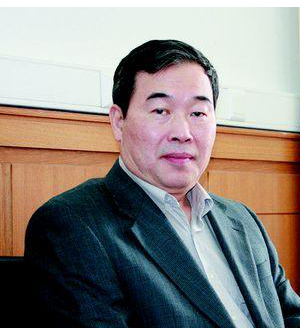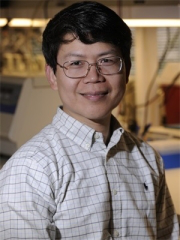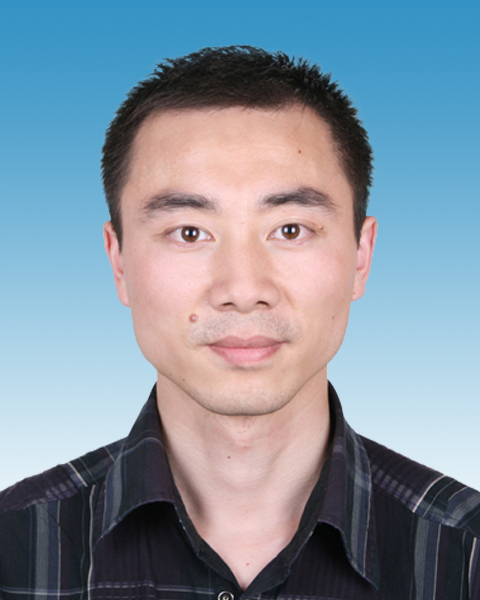中国科学院院士、美国国家科学院外籍院士、中国科学院神经科学研究所所长蒲慕明教授,美国国家科学院院士、德克萨斯大学西南医学中心Zhijian Chen教授,国家杰出青年基金获得者、哈工大生命科学与技术学院院长、生命科学中心主任黄志伟教授将做客我校第二届生命科学前沿论坛并带来精彩学术报告,欢迎校内外师生参加。具体安排如下:
报告时间:2019年5月17日(星期五)上午8:30-11:00
报告地点:哈工大活动中心214报告厅
报告1
报告题目:Macaque models for neurobiology and biomedical research
报告人:蒲慕明

报告人简介:
Mu-ming Pu is the founding and current director of Institute of Neuroscience, Chinese Academy of Sciences, director of CAS Center for Excellence in Brain Science and Intelligence Technology, and Paul Licht Distinguished Professor in Biology Emeritus at University of California, Berkeley. He studied physics at Tsinghua University (Taiwan) and received PhD in biophysics from Johns Hopkins University. He had served on the faculty of University of California at Irvine, Yale University, Columbia University, and University of California at San Diego, and University of California, Berkeley. His main research interest is to understand the cellular mechanisms regulating the formation and plasticity of neural circuits. He is a member of Academia Sinica, US National Academy of Sciences, Chinese Academy of Sciences, and Hong Kong Academy of Science. He had received Docteur Honoris Causa from Ecole Normale Supérieure, Paris, Hong Kong University of Science and Technology, and Claude Bernard University of Lyon. He was awarded Ameritec Prize (2001), P. R. China International Science & Technology Cooperation Award (2005), Qiushi Distinguished Scientist Award (2011), and Gruber Neuroscience Prize (2016). He is currently on the editorial board of more than ten scientific journals, and serves as the Executive Editor-in-Chief for National Science Review.
报告2
报告题目:The enemy within-immune and autoimmune responses to DNA
报告人:Zhijian Chen

报告人简介:
Zhijian ‘James’ Chen is an Investigator of Howard Hughes Medical Institute, and Professor in the Department of Molecular Biology at the University of Texas Southwestern Medical Center at Dallas. He is also Director of Inflammation Research Center and George L. MacGregor Distinguished Chair in Biomedical Science at UT Southwestern. Prior to moving to Dallas, Chen was a senior scientist at ProScript Inc. where he helped discover the proteasome inhibitor VELCADE, a medicine used for the treatment of multiple myeloma. After joining UT Southwestern in 1997, Chen discovered the regulatory role of ubiquitination in protein kinase activation in the NF-B and MAP kinase pathways. In addition, he discovered the Mitochondrial Antiviral Signaling (MAVS) protein that reveals a new role of mitochondria in immunity. More recently, Chen discovered cyclic GMP-AMP synthase (cGAS) as a cytosolic DNA sensor and a new cyclic di-nucleotide signaling pathway that mediate innate immune responses in animal cells. For his work, Chen has received numerous honors including the National Academy of Science Award in Molecular Biology (2012), the American Society of Biochemistry and Molecular Biology (ASBMB) Merck Award (2015), the Lurie Prize in Biomedical Sciences from the Foundation of NIH (2018) and the Breakthrough Prize in Life Sciences (2019). Chen is a member of the National Academy of Sciences.
报告3
报告题目:The arms race between CRISPR adaptive immune systems of prokaryotes and anti-CRISPRs of phages
报告人:黄志伟

报告人简介:
Zhiwei Huang is a Professor of the School of Life Science and Technology (SLST) at Harbin Institute of Technology (HIT). He is also Dean of SLST, Director of the HIT Center for Life Sciences (HCLS) . After finishing his PhD thesis from Jijie Chai's laboratory at National Institute of Biological Sciences in 2008, he went to Laurie H. Glimcher’s laboratory at Harvard University to receive his postdoctoral training. His research area is molecular mechanisms of infection and host defense. He has made significant achievements in studying the structure-function relationship of macromolecule complex in the field of host immunity and pathogen infection. He was winner of the National Science Fund for Distinguished Young Scholars, winner of the New Century Excellent Talents Program of the Ministry of Education. He was awarded Cheung Kong Scholars Young Scholar Program, Tan Jiazhen Life Science Innovation Award, and China Youth Science and Technology Award.


